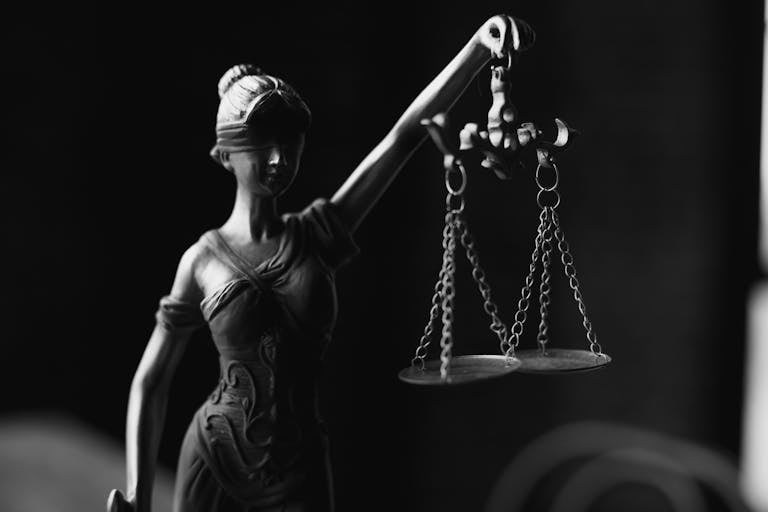Is DUI a Felony? (Legal Consequences of Driving Under the Influence)
Introduction
Buckle up, folks! We’re about to take a sobering journey through the world of DUI law. Whether you’ve had a brush with the law after a night out or you’re just curious about the legal landscape, this article will steer you through the twists and turns of DUI charges and a DUI arrest.
Did you know that every day, about 32 people in the United States die in drunk-driving crashes? That’s one person every 45 minutes. It’s a statistic that’s hard to swallow, much like that last drink you probably shouldn’t have had before getting behind the wheel.
So, let’s put pedal to the metal and explore the burning question: Is DUI a felony? Spoiler alert: It’s not a simple yes or no answer.
Is Driving Under the Influence a Felony? The Legal Roadmap
Alright, let’s cut to the chase. Is DUI a felony? Well, it depends. (I know, I know, that’s a lawyer’s favorite phrase, right up there with “billable hours” and “objection, Your Honor!”)
In most cases, a first-time DUI offense is classified as a misdemeanor DUI offense. But don’t start celebrating yet! Even a misdemeanor DUI conviction can lead to serious consequences, including:
- Fines (say goodbye to that vacation fund)
- Driver’s License Suspension (hello, bus pass!)
- Mandatory alcohol education programs and DUI classes (not nearly as fun as it sounds)
- Probation (like having your mom follow you around, but stricter)
- Possible jail time (up to six months in some states)
Now, here’s where things get as dicey as a game of drunk Jenga. A DUI can be upgraded to felony charges under certain circumstances:
- Multiple Offenses: In many states, your third or fourth DUI can be charged as a felony offense. It’s like a terrible loyalty program where the prices get worse.
- Injury or Death: If your impaired driving causes injury or death to another person, you’re looking at felony charges faster than you can say “breathalyzer.”
- Child Endangerment: Driving under the influence with a minor child in the car can bump your charges up to a felony level. Pro tip: Don’t do this. Ever.
- Extremely High BAC: Some states will charge you with a felony if your Blood Alcohol Concentration (BAC) is way over the legal limit. We’re talking “How are you even conscious?” levels here.
- Prior Felony DUI: If you’ve already had a felony conviction DUI in the past, subsequent DUIs may automatically be charged as felonies. It’s the legal equivalent of “fool me once, shame on you; fool me twice, here’s a felony charge.”
Real-Life Examples: When DUI Hits the Fan
Let’s look at some real-life examples to see how this plays out in the wild:
- The NFL Player’s Fumble: In 2022, Las Vegas Raiders wide receiver Henry Ruggs III was charged with felony DUI resulting in death after a fiery crash that killed a young woman. His BAC was reportedly twice the legal limit, and he was allegedly driving at 156 mph just before the crash. The result? He’s facing up to 50 years in prison.
- The Actor’s Repeated Felony DUI Offenses: Back in 2018, actor Vince Vaughn was arrested for a felony DUI charge in California. It wasn’t his first rodeo – he had a prior arrest in 2001. While he ultimately pleaded no contest to a reduced charge of “wet reckless” driving, this case shows how prior offenses can escalate charges.
- The “Affluenza” Teen: In a notorious 2013 case, Texas teenager Ethan Couch killed four people while driving drunk. His defense team argued that his wealthy upbringing had left him unable to understand the consequences of his actions, dubbing it “affluenza.” He initially received probation, sparking outrage, but later served two years in jail for violating probation.
The Ripple Effect: Lives Changed Forever
Now, let’s talk about the elephant in the room – the lives affected by DUI criminal offense. It’s not just about legal consequences; it’s about the human cost.
- According to the NHTSA, about 32% of all traffic crash fatalities in the United States involve drunk drivers.
- In 2020, 11,654 people died in alcohol-impaired driving traffic deaths – a 14% increase from 2019.
- Mothers Against Drunk Driving (MADD) reports that two in three people will be involved in a drunk driving crash in their lifetime.
Behind each of these statistics is a story – a life cut short, a family left grieving, a future irrevocably altered. And it’s not just the victims. DUI convictions can have long-lasting effects on the offender’s life too:
- Employment: Many employers run background checks, and a DUI conviction can be a red flag.
- Education: Some colleges may revoke scholarships or deny admission to applicants with DUI convictions.
- Relationships: The stress of legal troubles and the stigma of a DUI can strain personal relationships.
- Financial Impact: Between legal fees, fines, increased insurance rates, and potential loss of employment, a DUI can be a major financial burden.
Frequently Asked Questions
Let’s tackle some burning questions about DUIs that might be swirling around in your mind:
- Q: Can I refuse a breathalyzer test? A: You can, but it’s not recommended. Most states have “implied consent” laws, meaning refusal can result in automatic driver’s license suspension and may be used against you in court.
- Q: How long does a DUI stay on my record? A: It varies by state, but typically a DUI remains on your record for 5-10 years. In some states, it’s forever. Like that embarrassing high school yearbook photo, it tends to stick around.
- Q: Can I get a DUI for driving under the influence of marijuana? A: Absolutely. DUI laws apply to all substances that impair driving, including marijuana, prescription drugs, and even some over-the-counter medications.
- Q: Will I lose my job if I get a DUI? A: It depends on your job. If you drive for a living or have a job that requires a clean record, a DUI offense could indeed jeopardize your employment.
- Q: Can I get a DUI while parked? A: Yes, you can. If you’re in control of the vehicle (like sitting in the driver’s seat with the keys), you could be charged with a DUI offense, even if the car isn’t moving.
The Importance of Legal Representation
If you find yourself facing DUI charges, it’s crucial to seek legal representation. A skilled DUI attorney can:
- Navigate the complex legal system on your behalf
- Identify potential defenses or procedural errors
- Negotiate for reduced charges or penalties
- Represent you in court proceedings
While it may seem costly, the expense of a good attorney is often far less than the long-term financial and personal costs of a DUI conviction. Many attorneys offer free initial consultations, so it’s worth exploring your options.
Ride-Sharing: Your Ticket to a Safe Night Out
Prevention is always better than cure, especially when it comes to DUIs. Thanks to the rise of ride-sharing services, it’s easier than ever to enjoy a night out without risking a DUI.
Apps like Uber, Lyft, and others offer convenient and affordable alternatives to driving under the influence. Many of these services even offer promotional codes for first-time users, making your safe ride home even more affordable.
Remember, the cost of a ride-share is always cheaper than a DUI. So next time you’re planning a night out, consider downloading a ride-sharing app. Your wallet, your driving record, and everyone else on the road will thank you.
Conclusion: The Road to Responsibility
So, is a DUI a felony? Sometimes. But regardless of whether it’s classified as a misdemeanor or a felony, one thing is clear: driving under the influence is a more serious offense with potentially life-altering consequences for those convicted.
The good news? It’s entirely preventable. With ride-sharing apps, a designated driver, and good old-fashioned taxis, there’s no excuse for driving under the influence and the consequences that follow (jail time/jail sentence, license revoked, bodily harm, and so forth). Remember, the best way to avoid a DUI is to stay sober behind the wheel.
Next time you’re out celebrating, think about the potential consequences before you reach for those car keys. Your future self (and everyone else on the road) will thank you. After all, the only bars you want to visit are the ones that serve drinks, not the ones with iron doors and uniformed guards.
Cheers to responsible driving!







